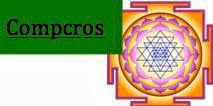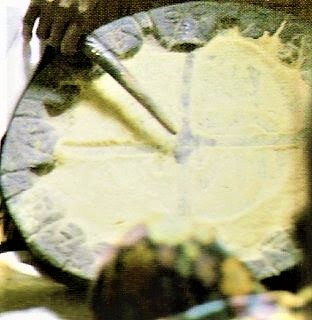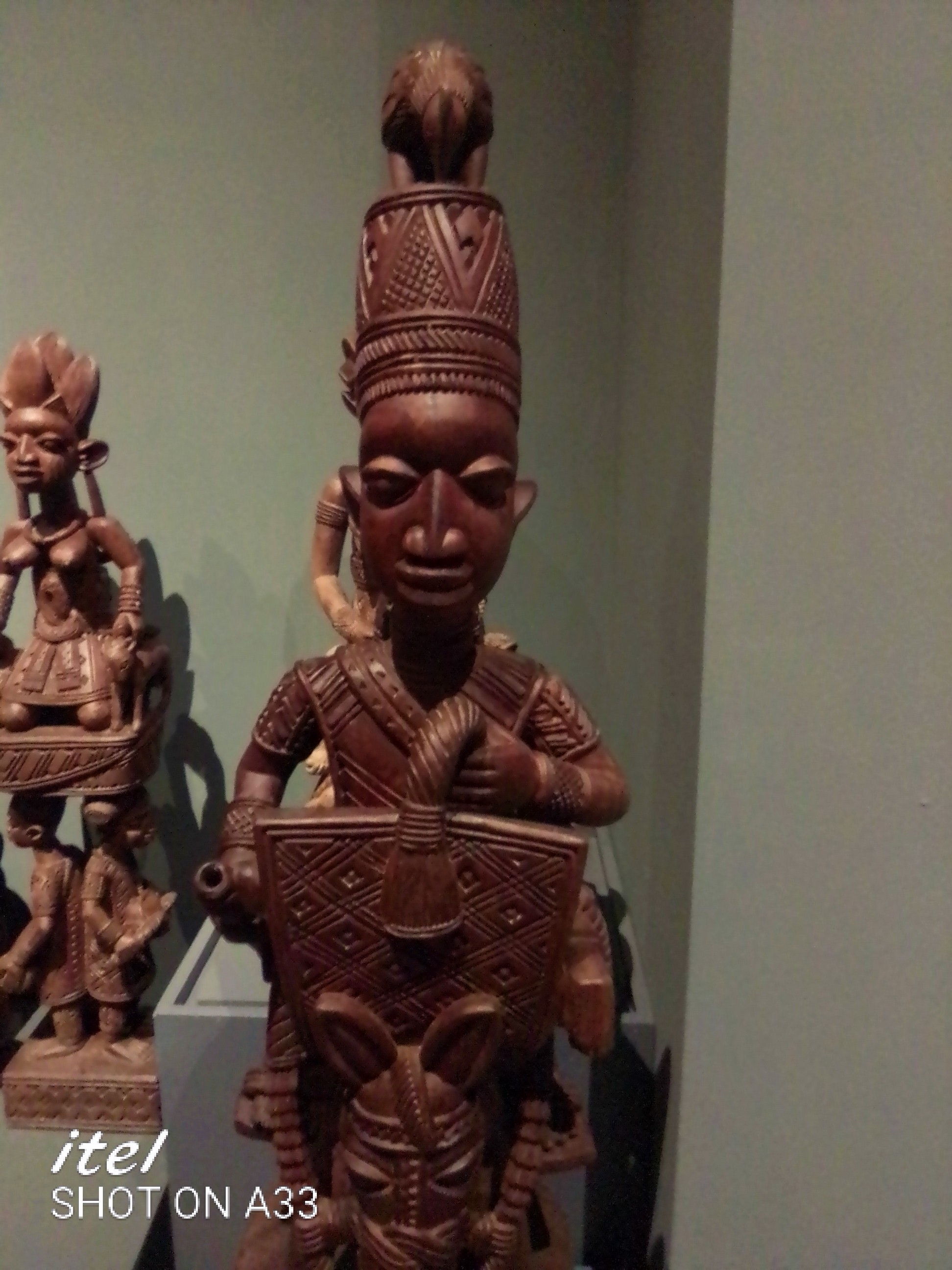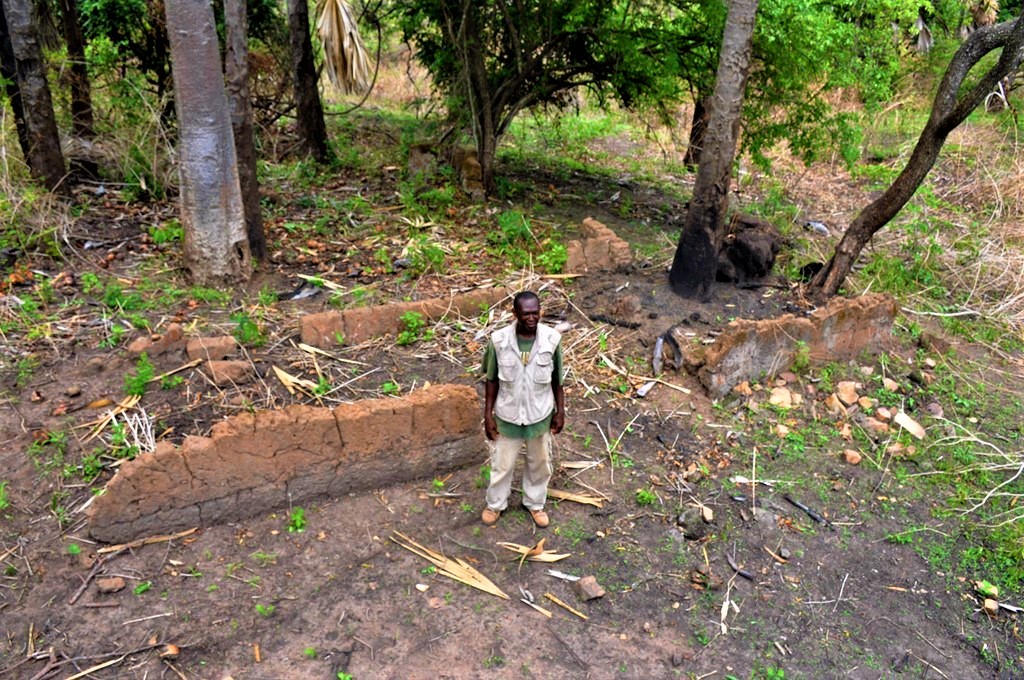Call for Papers: Transdisciplinary Dynamics in Historiography: Akinwumi Ogundiran's The Yoruba: A New History
Oluwatoyin Adepoju

ed.jpg?part=0.0.5&view=1)
An invitation to participate in a collaborative exploration,
represented by the publication of a book of essays by various contributors,
of Akinwunmi Ogundiran's landmark work in history writing, The
Yoruba: A New History (2020), an amazing book at the intersection of history as
imaginative recreation, history as literature, history as archeological
reconstruction, history as philosophical speculation, history as created
through oral and textual archives, and other correlations synthesized to
create a work that is delightful to read in its narrative flow and
expressive power, ideationally scintillating and
philosophically provocative, as oral cultures and archeological, artistic and textual sources
are integrated in an effort to understand the full scope of possibilities
actualized in the development of Yoruba history.
Annotated images from Yoruba art and of Ogundiran's archeological explorations are employed in this essay in highlighting themes in the book.
Akinwumi Ogundiran's The Yoruba: A New History ( Indiana UP, 2020), is a book in which
oral cultures and archeological, artistic and textual sources are harmonized in
an effort to understand the full scope of possibilities actualized in the
development of Yoruba history, from the influence of landscape, to economics,
technology, politics, warfare, spirituality and philosophy, a working out of
what the author describes as the character of Yoruba knowledge capital, a
development from the Yoruba community of practice.
While historicizing the development of Yoruba thought within the matrix of
environmental and social developments, the work achieves a force of universal
value in its transdisciplinary skill in history writing, as the literary, the
imagistic, the analytical and the speculative converge in an arresting
narrative feeding various orientations.

The making and study of history may be understood in terms of the activity of living and the study of this activity. Living involves the shaping of the self by circumstance and individuality and the construction of situations by circumstance and individual agency. History may be seen as the study of this dynamic between awareness and circumstance.
This intersection of sentience and context may be understood as evoked by an interpretation of the symbolism of the opon ifa, shown above, a primary instrument and cosmographic form of the Yoruba origin Ifa system of knowledge.
Perceived in terms of Yoruba cosmology, the self is positioned at the existential correlates of the centre of the intersecting vertical and horizontal lines that may be inscribed on the opon ifa, preparatory to the exploration of relationships between the self, the factors that shape its circumstances, and of how this situation may be directed.
The dialogue of the self with the complex of possibilities constituting its context at a point in time could be seen as represented by inscribings on the circumference of the often circular tray.
The vertical lines at the centre of the opon ifa may evoke the motion of time from the past, to the present and the future. The horizontal line could suggest the possibilities that influence that temporal flow, indicating both shaping circumstances and probable outcomes.
All these possibilities can be described as subsumed by the circularity of the tray, standing for the cosmic context of existence in its material and metaphysical possibilities.
Ogundiran's The Yoruba: A New History may be understood in terms of the template suggested by this interpretation of opon ifa symbolism, even though Ogundiran does not reference such an interpretive scheme in his effort at developing his study of Yoruba history in relation to Yoruba thought.
To what degree can such ideas enrich a project such as his, integrating nature, politics, warfare, technology, economics and religion in understanding the complex of possibilities represented by Yoruba history and the logic of the developments that eventually emerged from this matrix, actualized in particular ways rather than in terms of other variants that remained unfulfilled?
Image source: Detail from Henry John Drewal et al's Yoruba:Nine Centuries of African Art and Thought ( 1989, 21)
Appreciation of the book is open even to those who have no knowledge of Yoruba history or culture as well as illuminating to experts in these fields. This is so on account of the sheer thoroughness of the writer's expressive style, working out through carefully projected and deeply analyzed narrative, a storytelling flow glorious in its dynamism, constructing a seamless meshing of various disciplinary strategies making the book exciting to various orientations.

The Feminine Dynamic in Yoruba Thought
What is the origin of the feminine dynamic in Yoruba thought and life, in spirituality, philosophy and commerce, completing the binary principle without which the masculine is incomplete, the feminine theorized as foundational to existence and vitality, being and becoming, supreme in the economic centre that is the market, itself evocative of the world as a nexus of possibilities alive with various forms of being, the feminine as embodiment of the creative and destructive possibilities of existence?
Ogundiran explores this question in his discussion of the development of female empowering thought through the myth of the female deity Oshun. How speculative and how concretely grounded is his account? To what degree does he respond to relationships between ideas of human creativity and encounters with the sacred in the construction of deity concepts, particularly those relating to sacred space, which may be understood in terms of the numinous as a quality independent of human awareness and the sacred as a human construct, ideas which may be evoked, for example, by Susanne Wenger's landmark writings on the Oshun forest, the Oshun river located within it, and Oshun, for whom the forest and river are understood as primary points of concentration of an otherwise globally ubiquitous deity?
Image above: Evocation of female power by Yoruba culture inspired sculptor Lamidi Fakeye, in the Yemisi Shyllon Museum, Lagos. Picture by myself.

Yoruba Military and Political History
One of the most powerful aspects of Ogundiran's book is his
account of Yoruba military history, particularly in its intersection with
politics. Of the highest literary value is his description of the Yoruba
struggle against Fulani invasion and the eventual defeat of the Fulani advance
at the historic battle of Osogbo. His depictions of individual courage,
political alliances and strategies in this unfolding conflict of earlier defeat
and eventual victory is so consummately constructed, that, like the chapter on
the ascension of Ife to spiritual, political and discursive centrality in
the Yoruba cosmos, it can stand on its own as a coherent publication of
most memorable quality.
What qualities does Ogundiran's engagement bring to this perennial trope of Yoruba history? How do the reverberations of that past relate to the present, as in the current status of Ilorin, the incursions into Yorubaland of terrorism by Fulani supremacists, the response to this by such a Yoruba nationalist as Sunday Igboho and alliances between the Yoruba Asiwaju Tinubu group and the Fulani centred Muhammadu Buhari links in Nigerian politics?
Image above: Mounted Yoruba warrior, by Lamidi Fakeye, in the Yemisi Shyllon Museum, Lagos. Picture by myself.
The book will be published and printed in Nigeria in digital and print versions and distributed globally. Each author will have a percentage of the book's profits as long as sales continue.
Expressions of interest should be directed to me at ovde...@gmail.com, on WhatsApp at 002348051439554 or on Facebook.

Material Forms and Historical Reconstruction
Picture by Molara Wood, presented by Pelu Awofeso at Nitter, showing Ogundiran in archeological work at the sites of the Old Oyo Empire. Ogundiran's book is marked by a striking balance between material evidence and its interpretation, at various levels of evident fact and speculative reading.
The following excerpt indicating the evidence at the site of Old Oyo, of the devastation wrought by the Fulani jihadists, rings with a force emerging from Ogundiran's archeological explorations of those locations, experiencing their associative resonance through direct encounter at the convergence of historical knowledge and historical echoes, an intimate experience he memorably projects to the reader, bringing alive for them the consequences of an event long departed with the centuries but still resonant in spatial reshapings and political contexts:
[After the defeat of
Òyó-Ilé by the Fulani jihadists at the Eléduwẹ War] the largest Yorùbá
political experience in the early modern era came to an end. Òyó-Ilé and scores
of other cities, towns, villages, kingdoms, and principalities in the northwest
Yorùbá region have since lain in ruins.
The alleys and avenues through which mounted men of chivalry once galloped and
the old compounds of the elite and the underclass are now taken over by the
thickets and thorns of woodland savanna and other wildlife who now call the
place home. Today, the once colorful and boisterous Akèsán market is in utter
silence, with the ageless boulders and some of the baobab trees being the only
witnesses of the past transactions.
What is the significance of Ogundiran's deployment of literary style and archeological engagement in historical narration?
Also published in
A Quest for Meaning : Akinwumi Ogundiran's The Yoruba : A New History blog
academia.edu (PDF)
My ongoing study of The Yoruba : A New History may be followed at Yoruba and African History as a Quest for Meaning : An Exploratory Journey with Akinwumi Ogundiran's The Yoruba : A New History
